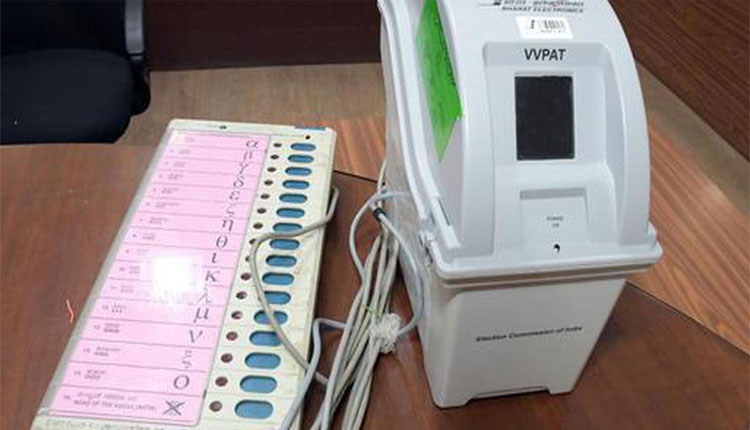New Delhi: On Monday, the Supreme Court of India rejected a petition that demanded the manual counting of 100% Voter Verified Paper Audit Trail (VVPAT) slips during elections. Petitioner Hansraj Jain had requested that every VVPAT slip from electronic voting machines be manually counted by hand as required, along with giving voters access to verify their vote slips—yet, after careful review, they decided that this issue had already been dealt with and no further hearing was necessary.
Court Cite Previous Rulings in Rejecting Petition
The petition was heard before Chief Justice Sanjiv Khanna, Justice Sanjay Kumar, and Justice K.V. Vishwanathan; their bench had previously heard it on August 12, 2024, and made reference to an earlier verdict from August 12, 2024, by which time both the Delhi High Court had already dismissed it by invoking earlier decisions from August, and the Election Commission had made arguments that EVMs are secure and transparent systems recognised by the Supreme Court itself.
Petitioner Arguing in Court and Their Replies by Judge
Hansraj Jain requested that the Election Commission implement VVPAT more efficiently. He proposed keeping printers open so voters could verify their vote before leaving the polling booth, with vote slips handed directly over to presiding officers as they leave each booth. Unfortunately, however, this proposal was denied by court.
Petition Denied Again in 2024
Last year, the Supreme Court declined a petition demanding 100% cross-check of EVMs and VVPAT slips through ballot papers but offered an option to review EVMs under certain conditions.
Conditions Required for Examining EVM
Candidates have seven days from when election results have been released to file an election-tampering complaint with election authorities.
Engineers from EVM manufacturing companies will investigate any complaints.
At least 5% of EVMs from each Lok Sabha constituency will be reviewed, with candidates or their representatives having the choice to select them themselves.
Candidates will bear all costs related to an examination.
In case any improper activities were committed by candidates during their election process, all expenses related to that will be reimbursed back.
The issue has previously been brought forward in 2019 and 2023.
Before the 2019 general elections, 21 opposition parties had demanded the matching of 50% VVPAT slips with EVMs; this request was turned down. Instead, the Election Commission permitted only matching 5 EVMs per constituency; some technocrats also filed petitions which were dismissed by the Supreme Court; this issue also surfaced again during the 2023 elections with the Association for Democratic Reforms raising it; however, the court denied this petition, emphasising that undue suspicion over election processes should not exist.



Comments are closed.